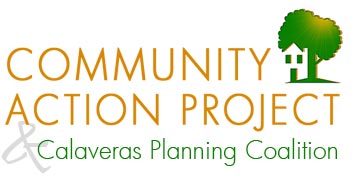project focused on sustainable land use planning.
Find out more about us >>
Water bond must recognize Sierra’s importance
By Steven Frisch
Special to The Bee
Published: Monday, Jul. 28, 2014
Before they left Sacramento for summer recess, legislators said they would work together to hammer out a new water bond bill when they returned in August. This would replace the $11.14 billion proposal currently on the November ballot, which has already been delayed twice.
Although legislators and Gov. Jerry Brown have put forward conflicting ideas that may be difficult to reconcile, we have confidence our leadership can get the job done. But it will be up to us to hold our elected leaders accountable because if they don’t pass a workable water bond deal, we risk devastating consequences.
Here are just a few reasons why:
• The drought is projected to cost the state’s economy $2.2 billion and the loss of 17,100 jobs.
• While the governor called for a 20 percent reduction in water use, urban and residential customers actually increased their usage by 1 percent.
• Based on that increase, the State Water Resources Control Board made wasting water a criminal act punishable by fines of up to $500 a day.
• 428,000 acres of irrigated cropland have gone out of production, including feed for livestock and dairy cows.
• Farmers are making up for lost water deliveries by pumping groundwater, but since groundwater isn’t monitored or regulated, we don’t know how much longer that can last.
• Nearly 80 percent of California voters believe we need to do something now to change how we manage groundwater supplies.
• And it’s gotten so bad even Lady Gaga is hawking the water conservation message.
California voters have passed water bonds every two to four years on average since the mid-1980s. We do this because protecting our water sources – for drinking, commerce, food production and for environmental and other needs – is fundamental to our individual and collective survival. It takes money and, when spent wisely, that money benefits the whole state.
Why is this bond proving so difficult?
To get a bond passed these days, it has to contain something for everyone, which inflates the price tag at a time when Brown and many Californians are trying to be more fiscally prudent. Economic pragmatism is a good thing, but we can’t let it undermine the important goal of protecting and enhancing our watersheds and the many services they provide.
California needs water bond funding to address the drought, protect jobs, conserve important resources and otherwise help fix the state’s outdated water system – beginning where the water does, in the source areas.
To that end, the Sierra Business Council recommends that any new water bond do the following:
• Recognize the forested watersheds of the Sierra-Cascade as an area of statewide significance because they provide 65 percent to 75 percent of the state’s developed water supply – including all or part of the drinking water for more than 23 million people and irrigation for one-third of California’s agricultural land – and make up half of the freshwater inflow to the Delta.
• Allocate funding using a regional approach in which population, land area and a region’s significance to the local and state water system are taken into account.
• Distribute funding through state conservancies in areas where they operate, honoring their local knowledge and track record of getting funding out on the ground efficiently and effectively to complete important projects that achieve statewide goals.
• And, perhaps most importantly, invest in the areas where it will do the most good, where the water originates – such as the Sierra Nevada and southern Cascade – not just in the urban areas where the votes are.
All Californians share a need for predictable, clean and abundant supplies of water, along with the many other benefits provided to us by our forested watersheds. Fixing the state’s water system will take decades; but we have real and documented needs right now. Investment in the source areas is one in a series of linked actions needed over the next 10 to 20 years to secure our water for the future. Investing in California’s primary watershed should be a high priority for the state, regardless of which bill becomes the final vehicle for a 2014 water bond.
Steven Frisch is president of the Sierra Business Council, a nonprofit network of more than 4,000 businesses, community organizations, local governments and individuals.

